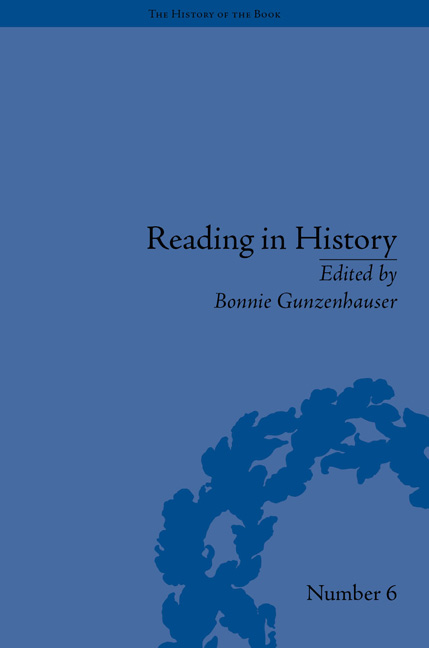Book contents
- Frontmatter
- CONTENTS
- Acknowledgements
- List of Contributors
- Introduction
- Section I Artefactual Methodologies
- Section II Paratextual Methodologies
- Section III Institutional Methodologies
- 6 Women Reading Shakespeare in the Outpost: Rural Reading Groups, Literary Culture and Civic Life in America
- 7 Turning Libraries into Public Works: Funding Arguments on the Local Level in Wilkes-Barre and Scranton, Pennsylvania
- 8 Explicating Explications: Researching Contemporary Reading
- Notes
- Works Cited
- Index
7 - Turning Libraries into Public Works: Funding Arguments on the Local Level in Wilkes-Barre and Scranton, Pennsylvania
from Section III - Institutional Methodologies
- Frontmatter
- CONTENTS
- Acknowledgements
- List of Contributors
- Introduction
- Section I Artefactual Methodologies
- Section II Paratextual Methodologies
- Section III Institutional Methodologies
- 6 Women Reading Shakespeare in the Outpost: Rural Reading Groups, Literary Culture and Civic Life in America
- 7 Turning Libraries into Public Works: Funding Arguments on the Local Level in Wilkes-Barre and Scranton, Pennsylvania
- 8 Explicating Explications: Researching Contemporary Reading
- Notes
- Works Cited
- Index
Summary
On 2 June 1933 at the 40th Anniversary of the Scranton Public Library and nearly the nadir of the Great Depression, a crowd assembled on the lawn of the library to hear Dr Henry Crane, local Methodist minister and long-time member of the board of directors of the library. At a time when the situation in Scranton was desperate (school teachers had been on strike that year because they had not been paid in over six months), Crane's words were intended to celebrate the library, bolster the confidence of the citizens of Scranton and encourage the city's leaders to increase public support for the library's shrinking budget. After describing the history and founding of the library, Crane told his listeners:
It is a crime to be poor, for the wealth of the world does not consist of bullion, of gold, of property, or of real estate. There is a vast mine of wealth seeking to give forth truth in the library. You can dig for gold in these volumes, it is there, but you must dig to get it, for it is attained only by digging with infinite effort.
Crane's comments are part of a long tradition in America of encouraging the economically oppressed to believe that through hard work they have the power to change their situation. Significantly, however, the hard work Crane advises is reading, a type of work with no clear productive potential; the reward is truth, a thing that has no tangible value or quantitative measure. No doubt Crane's choice of mining as the metaphor for work was deliberate. The city's wealth had been built through mining and the local economic crisis was due in part to the fact that coal had been largely mined out. His speech remade the Horatio Alger myth for hard times, constructing a new myth for a group of town fathers no longer as wealthy or powerful as they once were and a group of citizens no longer as certain of their ability to achieve the American Dream.
- Type
- Chapter
- Information
- Reading in HistoryNew Methodologies from the Anglo-American Tradition, pp. 101 - 118Publisher: Pickering & ChattoFirst published in: 2014



